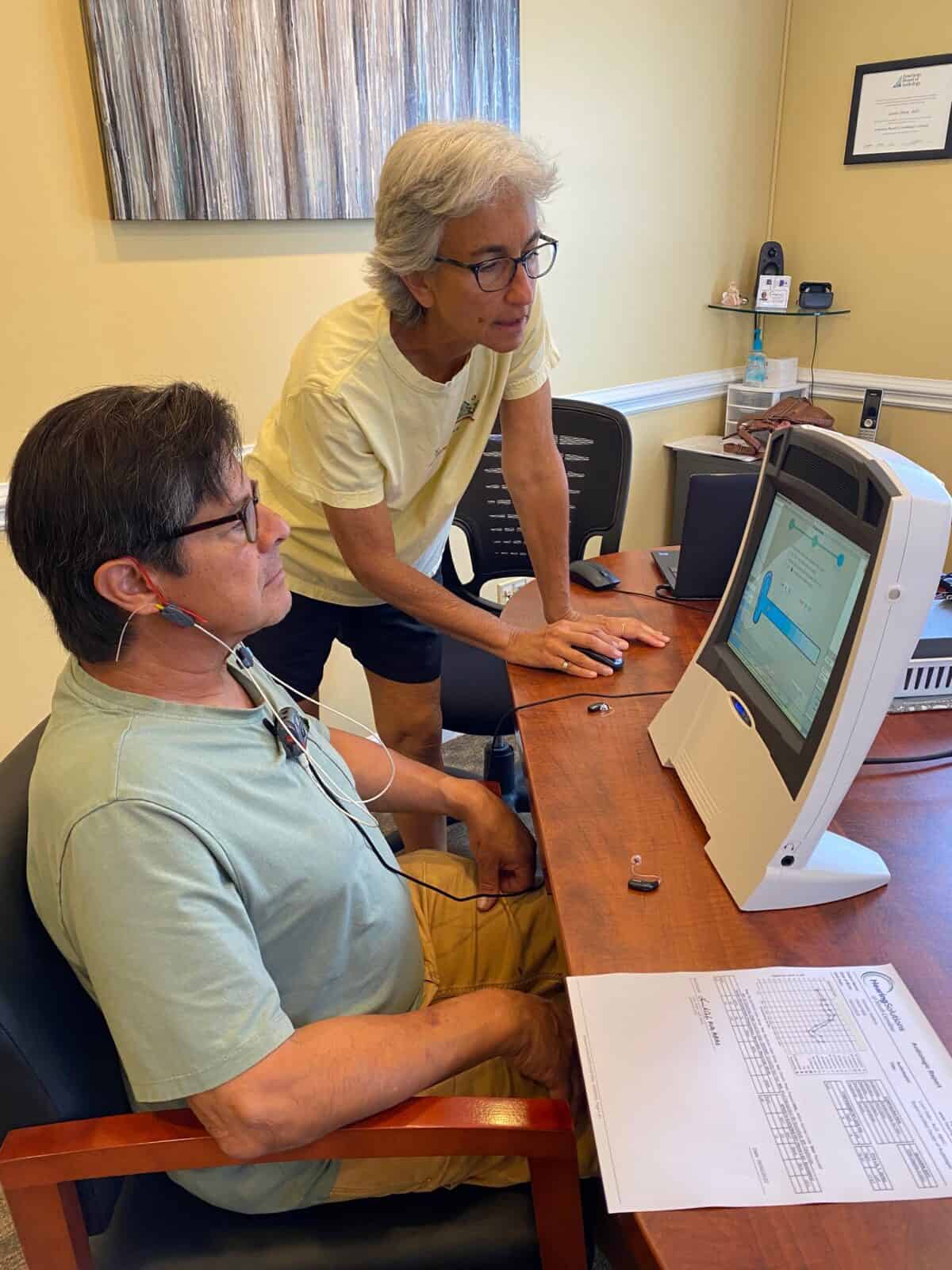Hearing loss progresses slowly. In its early stages, hearing loss is nearly imperceptible. The only clue that one’s hearing has changed may be the occasional misunderstanding of a word. As hearing loss progresses, however, most people notice increased difficulty when listening in background noise, often asking others to repeat themselves. In most cases, friends and family of the person with hearing loss notice the change before the affected individual does.
In the early stages of hearing loss, most people do not want to take any action. They may insist that their hearing is normal, or they believe that their hearing is not yet bad enough. They think, “I’ll treat it when I need to or when it becomes a problem.” Since they are able to “get by” without hearing aids, they don’t consider the cost of hearing aids worth the investment. These individuals don’t realize the many subtle sounds they are missing out on.
The most common sounds that people with hearing loss miss are high frequency consonants. These sounds give crispness and clarity to speech and other sounds. Without them, voices become muffled, and misunderstandings occur more frequently. A common complaint I hear in my office is that people mumble too much. After I review a patient’s audiogram and show him his high-frequency hearing loss, I explain that the mumbling of others is not the problem; the problem is their own ears. Without high-frequency speech sounds, the world appears to mumble.
Besides speech, many other sounds evade people with even mild hearing loss. These sounds include bird calls, children’s voices, car mechanisms (such as clunks that indicate a need for repair or clicks of a turn signal), and even the fine nuances (timbre) in music. While not all sounds are enjoyable–such as the refrigerator running–they provide much needed auditory information, telling you that the refrigerator, or car, or other machine is running properly. It can be easy to think that a high-frequency hearing loss is “no big deal.” But, when you miss out on these important sounds, your hearing should become a priority.
Research shows that individuals with hearing loss who get hearing aids early do significantly better with them over their lifetime. Because they do not experience a long period of time without access to these finer parts of sound, their brains are able to easily interpret the signals once they are restored and adapt with ease. Those who wait until they “really need help,” however, often find adapting to hearing aids more challenging, since their brains must relearn those signals. I have seen this process in my office time and time again. People who get hearing aids when their loss is first diagnosed are, almost without exception, thrilled with their hearing aids and adapt readily to new technology as needed. People who wait until they can’t wait any longer experience frustration and irritation as their brains adjust to all the sounds, they once heard but have forgotten how to interpret.
If you suspect that you or someone you love may be at the beginning stages of hearing loss, it’s time to get your hearing checked by Dr. Oden at Hearing Solutions of North Carolina to determine if you are at the optimal time to get hearing aids. Your time to act is now. Don’t wait! Your ears, your brain, and your family will be grateful you took initiative to hear better.

